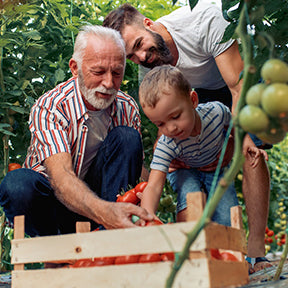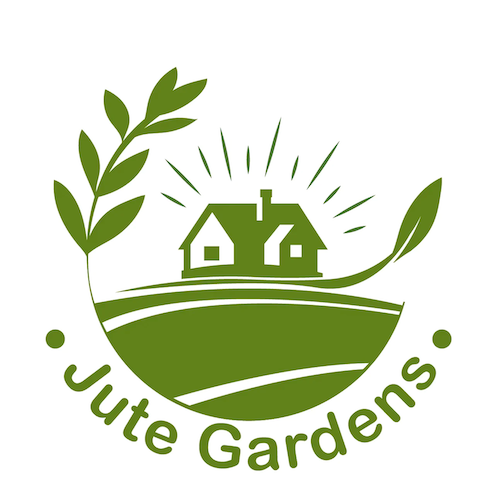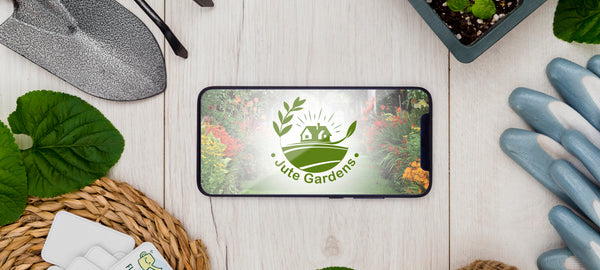
Health Benefits of Growing Your Own Food
Gardening is not just a hobby. It can change your physical and mental well-being for the better. When you grow your food, your diet improves. There are several health benefits of growing your food at home.
Growing your food can increase the freshness of the produce, increase its nutritional values, help you avoid certain diseases, gain important vitamins, and much more.
As a home gardener, you should know all these facts in detail and understand how you can cultivate your food at home.
6 Health Benefits of Growing Your Food

Until now, you likely knew that gardening was a great hobby. But you probably hadn’t thought about how it influences your health and the health of your family, directly or indirectly. If you already grow your food at home, you may be enjoying its benefits without even realizing it. But if you do not have a garden yet, it's time you start making one!
Healthier Foods
The products you buy from the grocery store are not always fresh. Often, the sellers use the leftover products from the previous day, spraying them with various chemicals and/or water to improve the smell and look of the product. But in reality, these mitigations simply mask imperfections.
Also, sometimes store managers will use vegetables and fruits from cold storage and then put them up for sale. These are not fresh, as they were often harvested weeks ago. Preserving them in this way keeps them long-lasting but it doesn’t keep them fresh.
So, if you grow your crops and microgreens at home, you can always consume the product in the freshest condition. Whenever you feel like eating, just pluck what you need, cook it, and eat it! There is no chance for the food to go stale or look dull.
More Nutrition
Some researchers have concluded that the produce grown years ago was of a higher nutritional value than today's produce. In some studies, nutrients have declined by about 40% over time.
The produce we buy at the grocery store is not only stale but it has been processed over and over again to retain its freshness. These added chemicals and processing methods disturb the nutrients in the food. But if you grow crops yourself, you can consume them without any processing. The soil can be of the best quality, so it also yields the best products.
Also, the parts of the vegetables that you don't eat (like the peels, roots, and seeds that you don't consume) can come in handy later. You can use them as natural fertilizers as they are biodegradable wastes. Moreover, they are high in nutrients, so they make excellent manure and improve the quality of the soil.
Helps You Gain Vitamin D
The sunshine vitamin – Vitamin D is vital for your health. Doctors advise that you spend a considerable amount of time, 15 to 20 minutes out in the sun every day to gain Vitamin D. It is essential for your bone health, kidney functions, skin, etc.
When gardening, you may spend this amount of time out in the sun every day. So, you are automatically killing two birds with one stone. Your gardening job is done on one hand, and you are gaining healthy vitamins on the other!
Keeps Away From Several Diseases
Various studies have proved that you remain happy and healthy when working in your home garden. You stay active physically, and it helps you prevent heart diseases and stroke. Also, since you are growing it fresh, there is no chance of consuming toxic chemicals. So, you are safe from all aspects.
Besides, you get to control what fertilizers and pesticides you use. Unlike store-bought foods contaminated with several chemicals and pesticides, your product is always under your control.
Limits The Chance Of Contamination
Food-borne illness is a deadly topic in today's world. If you contract harmful bacteria, the disease can take a huge toll. Due to contamination by several bacteria like Salmonella, Listeria, Bacillus, etc., consuming food from external sources has become quite risky.
These bacteria mainly produce spores and then contaminate the soil and food, thus potentially causing food poisoning. When you are planting your food, there is minimal chance of contamination. You get to control the quality of the soil. So, you can enjoy the vegetables you plucked from your garden fearlessly without being scared of food poisoning.
How You Can Grow Your Food In Sustainable Ways
If you are a beginner gardener you can start small with a microgreen kit or small garden at home. Try to grow your food in sustainable ways if possible, using eco-friendly materials and biodegradable wastes.
Growing In Your Apartment

If you live in a multi-storeyed building or a condo, it is hard to make a big garden in your home. The clever thing to do is to use the wall space, rooftops, sun sheds, windowsills, and balconies to grow a small garden. You can expand it however you want.
You can use vertical living wall gardens from Jute Garden made out of jute fibers. These natural fibers don't contaminate the environment like plastic pots and they are recyclable. We use sustainable materials, so don't worry about polluting the environment.
You can buy microgreen kits from Jute Gardens as well. These can be harvested in 7 to 10 days and provide you with the freshest and tastiest produce!
Growing In Your Garden
You can use bamboo and jute-made pots instead of plastic containers and trays when growing in your gardens.
Set up your space and buy all necessary tools and supplies. Make sure your garden has a good lighting source and proper aeration facilities. And use good quality soil. Besides, when growing outdoors, you can choose any annual or perennial plant.
Recycle the leftover produce as manure for your future crops so that you can cut down on your carbon footprint.
Conclusion
Growing your food at home can take some work but the benefits are immeasurable. Gardening will keep you healthy, wealthy, and wise!
Happy gardening!

